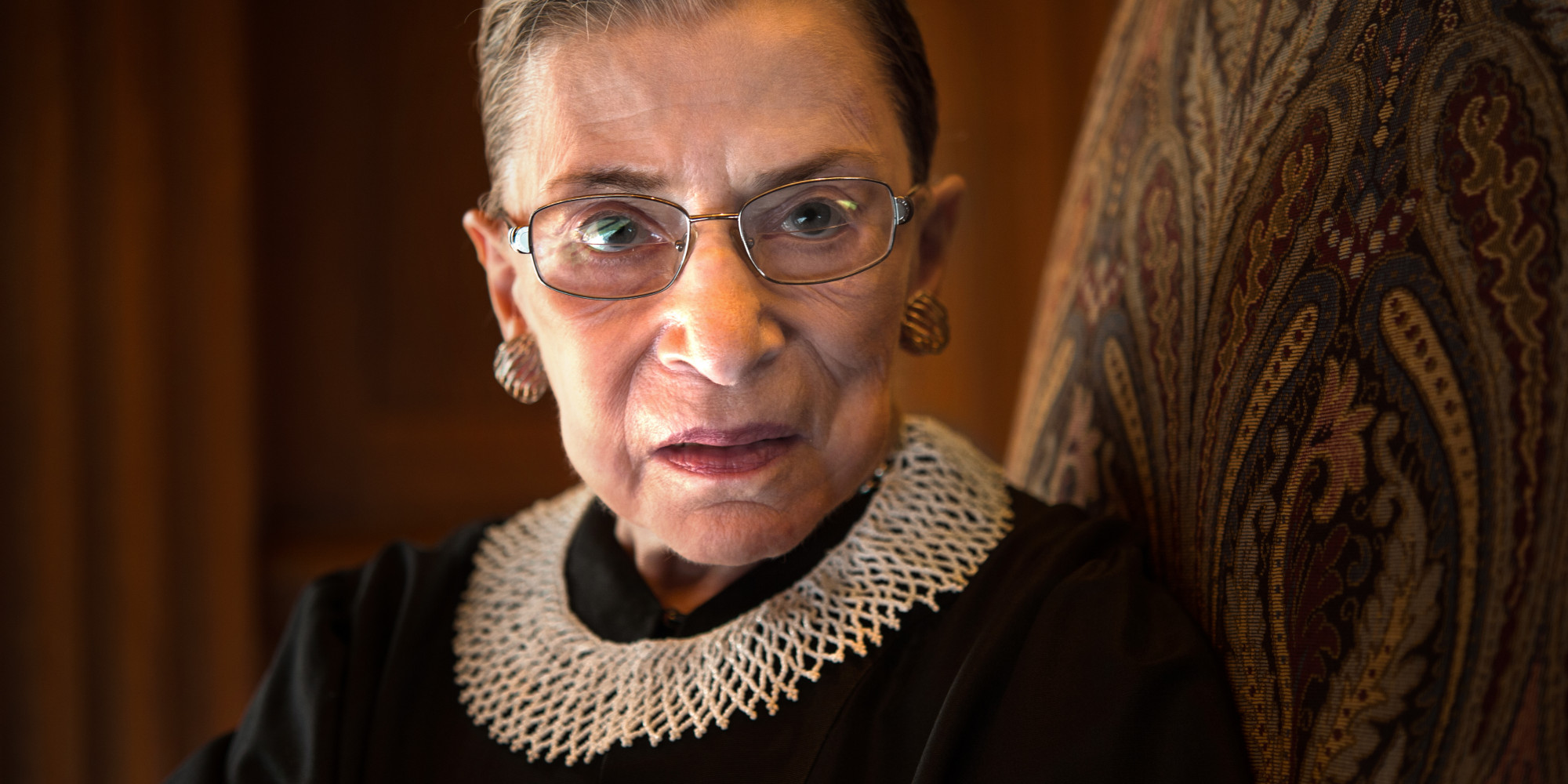
By Sam Fulwood III (Senior Fellow, Center for American Progress)
Out in the wilds of the Internet exist two sets of memes establishing Supreme Court Justice Ruth Bader Ginsburg as a champion of progressive idealism.
In one of them, Justice Ginsburg assumes the alter ego of the so-called Notorious R.G.B. This Tumblr fabrication equates the diminutive and eloquent jurist with the robust and bawdy rapper Christopher George Latore Wallace, also known as Biggie, Biggie Smalls, or—as is pertinent to this column—the Notorious B.I.G.
In the other, well-trafficked meme, Ginsburg is the shero of feminism, expressing her displeasure at the inability of her male colleagues on the Supreme Court to comprehend a woman’s right to control her body.
With nothing more than a compilation of side-eye facial gestures, Ginsburg shows her disdain for mansplaining.
As these images went viral, a pop culture icon emerged: There are now t-shirts bearing Ginsburg’s likeness and breathless online articles to prove it.
So it is akin to an “Et tu, Brute?” moment for her erstwhile unquestioningly adoring, progressive fans to learn that she harshly criticized the San Francisco 49ers quarterback Colin Kaepernick and a handful of other professional football players and their supporters for refusing to stand for the national anthem prior to the kickoff of their games.
During a wide-ranging interview earlier this week with Yahoo News’ Katie Couric, Ginsburg shared her feelings about the football players’ silent protest: “I think it’s really dumb of them,” she said. When asked to elaborate, she added:
Would I arrest them for doing it? No. I think it’s dumb and disrespectful. I would have the same answer if you asked me about flag burning. I think it’s a terrible thing to do, but I wouldn’t lock a person up for doing it. I would point out how ridiculous it seems to me to do such an act…If they want to be stupid, there’s no law that should be preventive. If they want to be arrogant, there’s no law that prevents them from that. What I would do is strongly take issue with the point of view that they are expressing when they do that.
Reactions from her fans were swift and negative. A stoutly progressive friend and colleague of mine shook her head in sadness as she lamented, “It’s so sad. The woman who detests mansplaining is now raceplaining.”
A more prominent voice, singer and songwriter Ne-Yo, profanely disagreed with Ginsburg and expressed disappointment about her comments in an interview with the entertainment news website TMZ. “She’s right,” he said in a recorded message about the justice. “There is no rules to stop people from being stupid the same way there is no rules to stop her from saying the dumb s*** she just said. … I expected better.”
Other notable voices challenged the justice, as well. For example, writing for The Nation, Dave Zirin takes Ginsburg to task:
I am less struck by the words “dumb,” “stupid,” and “arrogant” than by the words she does not say: “police,” “racism,” “injustice,” or “death.” There is no reckoning with the reason why so many people feel driven to kneel in protest and raise their fist in the name of black lives.
Whether you love or hate the San Francisco 49ers quarterback, his political principles and actions are anything but arrogant. … Instead, he is risking his precarious place in the sports world by choosing this moment in his career to stand up. That’s not arrogance. It’s conviction. To even call Kaepernick “arrogant” sounds much too close to “uppity” for comfort.
As painfully disappointing as Ginsburg’s comments are—and they are profoundly upsetting—this is yet again another teachable moment in the country’s ever-evolving struggle to recognize how institutional racism—which is so deeply embedded in the national conscience—cripples even those who are allies in the struggle for equality.
Ginsburg is a product of her world. She is an 83-year-old woman who has devoted her life to the law. As Mark Joseph Stern points out in an insightful Slate article, Ginsburg “was never really ‘Notorious RGB.’” Instead, he writes, “Ginsburg’s social and professional cohort is largely limited to an elite circle of friends in the arts, the law, and academia. She is not a rabble-rouser and probably does not know any rabble-rousers.”
Thus, as her comments suggest, Ginsburg believes there is a right and a wrong way to protest, to which those who support Kaepernick’s view take fitful exception. Her thinking on this matter fails to accept that values are more important than tactics and that protest is a legitimate, necessary, and uncomfortable process to wrest change in a society that is more comfortable with the status quo.
What this candid peek into the mind of a modern-day liberal icon should tell us is that sometimes even favored allies won’t—or perhaps, can’t—walk the walk in every cause because sometimes they are incapable of seeing the world from where others stand. It’s a good reminder, as Dr. Martin Luther King Jr. noted in his famous piece “Letter from a Birmingham Jail”: “Shallow understanding from people of good will is more frustrating than absolute misunderstanding from people of ill will. Lukewarm acceptance is much more bewildering than outright rejection.”
Ginsburg is no less an ally to progressivism in the wake of her imprudent comments than she was before she made them. Her record on the bench shows her as a stout and outspoken advocate for women, civil rights, and equality. In all likelihood, her opinions to come from the Supreme Court will still affirm progressive causes and issues. It’s just that in this case, it hurts to see her exposed mind because she’s so painfully wrong.
Sam Fulwood III is a Senior Fellow at the Center for American Progress and Director of the CAP Leadership Institute. His work with the Center’s Progress 2050 project examines the impact of policies on the nation when there will be no clear racial or ethnic majority by the year 2050.



